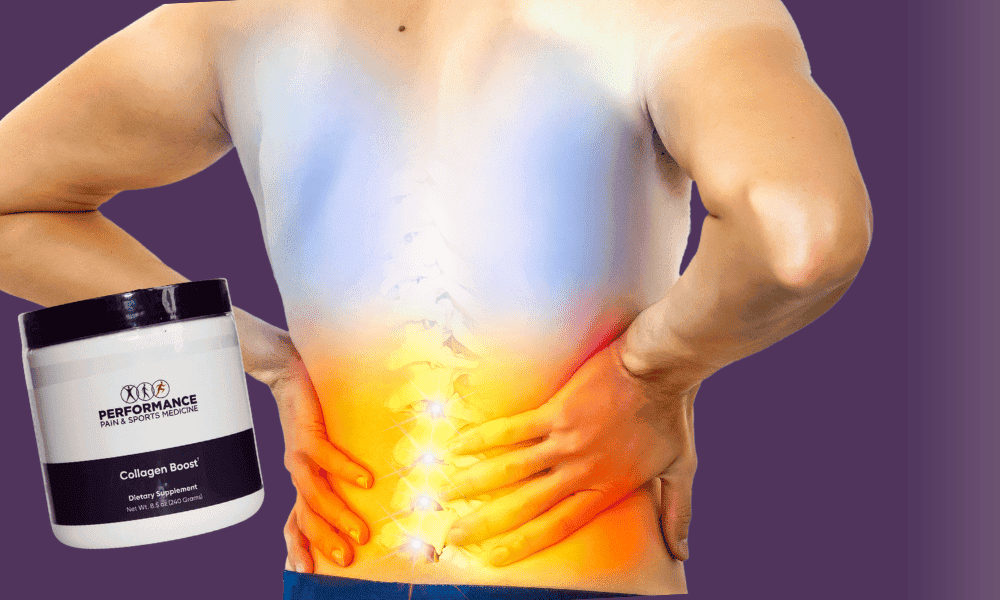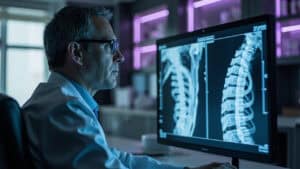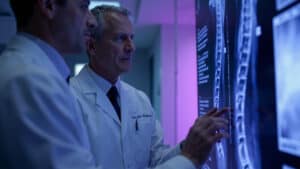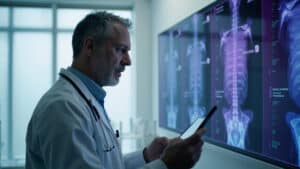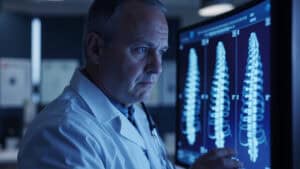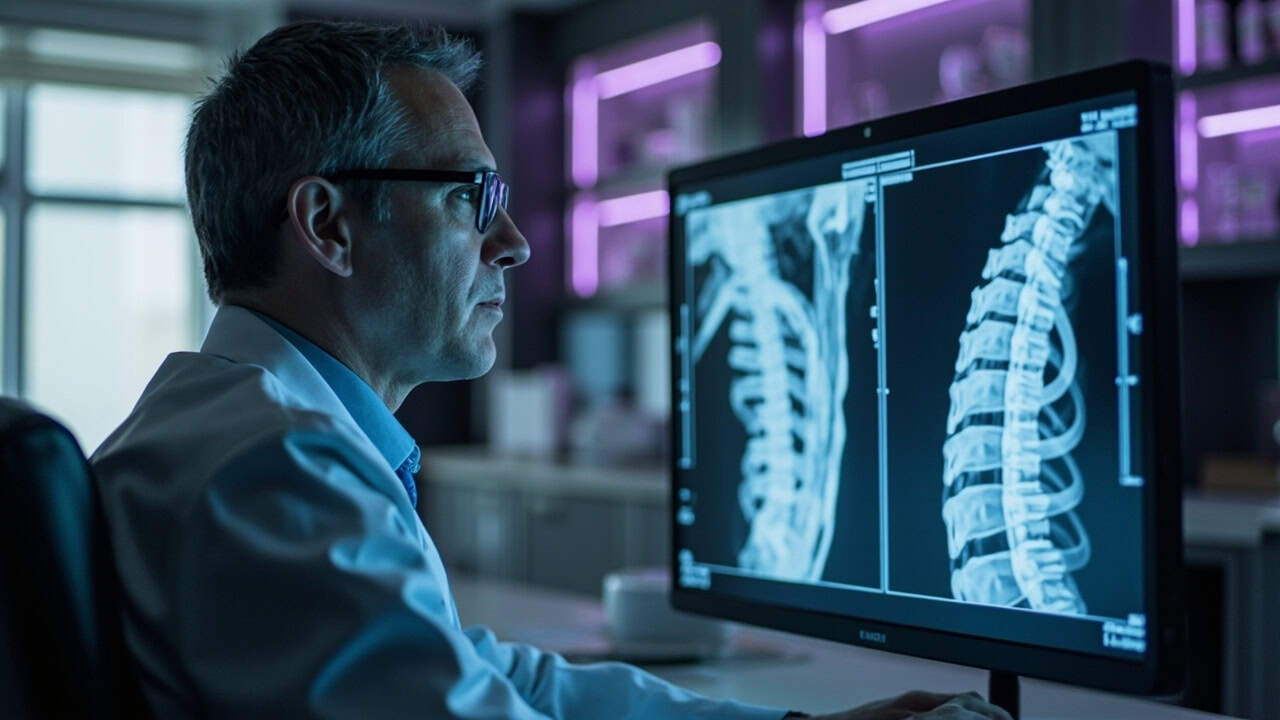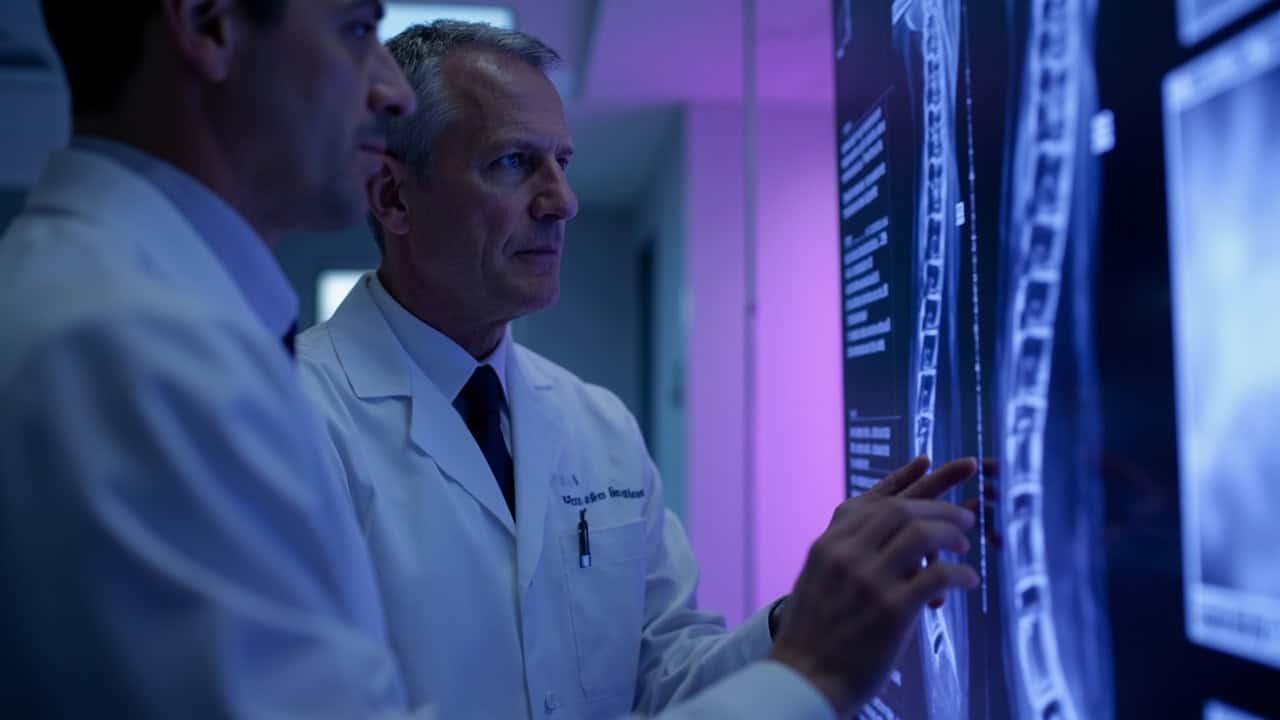Introduction: Understanding Herniated Discs
Taking collagen for a herniated disc is highly recommended by experts at Performance Pain and Sports Medicine, as it supports spinal health and may aid in the recovery process. This natural supplement enhances the strength and flexibility of the spinal discs, offering a promising option for those seeking relief and healing.
Herniated discs are a prevalent concern that affects a significant portion of the population, leading to discomfort, pain, and in some cases, a pronounced impact on quality of life. Dr. Suzanne Manzi, a distinguished expert in the realm of interventional pain management, brings a wealth of knowledge and experience to the forefront in addressing this condition. Her approach combines cutting-edge treatments with a holistic understanding of patient care, emphasizing the importance of natural healing alongside medical interventions.
What is a Herniated Disc?
A herniated disc occurs when the soft, inner gel of a spinal disc pushes through a tear in the tougher outer layer, often leading to nerve irritation and discomfort. Dr. Manzi explains this phenomenon with the precision of a seasoned professional, ensuring patients comprehend the intricacies of their conditions. She believes in empowering her patients with knowledge, enabling them to take an active role in their recovery process.
Symptoms and Causes
The symptoms of a herniated disc can vary widely, from sharp, localized pain to numbness or weakness in the limbs. Dr. Manzi meticulously assesses her patients, identifying the specific manifestations of the condition to tailor a personalized treatment plan. She highlights that while aging is a primary factor due to disc degeneration, lifestyle choices, and physical strain can also contribute significantly to the development of herniated discs. Her expertise shines as she navigates through the complexities of diagnosing and treating such conditions, always with a patient-first mindset.
The Importance of Natural Healing
Dr. Manzi is a staunch advocate for natural healing, prioritizing non-invasive methods to support the body’s recovery. Her comprehensive approach to treatment encompasses nutrition, physical therapy, and lifestyle modifications, aimed at enhancing the body’s intrinsic healing capabilities. She underscores the significance of a balanced diet, regular exercise, and adequate rest in fortifying spinal health and aiding in the recovery from a herniated disc. Dr. Manzi’s philosophy of care is rooted in the belief that integrating natural healing strategies with conventional medical treatments offers the best pathway to recovery, ensuring her patients not only find relief from their symptoms but also experience improved overall well-being.

The Role of Collagen in Disc Health
In the intricate anatomy of the spine, collagen stands out as a pivotal element for maintaining disc health and integrity. Dr. Suzanne Manzi, with her deep-rooted expertise in interventional pain management, underscores the critical role of collagen in ensuring the optimal functioning of spinal discs. Her approach is grounded in a comprehensive understanding of the body’s natural mechanisms for health and recovery, particularly in the context of herniated disc treatment.
How Collagen Supports Spinal Health
Collagen, the most abundant protein in the human body, plays a fundamental role in maintaining the strength and flexibility of the spinal discs. These discs, acting as cushions between the vertebrae, rely on collagen for their structure and ability to absorb shock. Dr. Manzi explains that collagen helps to preserve the elasticity and integrity of the spinal discs, which is essential for preventing disc degeneration—a common precursor to herniations. In her practice, Dr. Manzi emphasizes the importance of collagen in supporting the overall health of the spine, advocating for a diet rich in collagen-boosting nutrients and considering collagen supplementation as a proactive measure for spinal care.
The Science Behind Collagen and Herniated Discs
The relationship between collagen and disc health is not merely anecdotal; it is grounded in scientific research. Dr. Manzi points to studies indicating that increased collagen levels can help in the repair and regeneration of disc cartilage, thus offering a potential pathway to alleviating the symptoms of herniated discs. She notes that collagen’s anti-inflammatory properties can also play a role in reducing the pain and discomfort associated with disc injuries. Furthermore, Dr. Manzi highlights ongoing research exploring the use of collagen peptides in directly promoting disc healing, offering hope for non-invasive treatment options for herniated disc sufferers.

Top Supplements for Herniated Disc Recovery
Dr. Suzanne Manzi highlights the importance of specific supplements in the recovery from a herniated disc, guiding patients towards those with the greatest benefits. Her expert, comprehensive approach in pain management underscores the critical role of targeted supplementation in the body’s healing process.
Collagen Supplements: Types and Benefits
Collagen is paramount in Dr. Manzi’s recommendations for herniated disc recovery, with a particular emphasis on hydrolyzed collagen and undenatured type II collagen supplements. Hydrolyzed collagen, or collagen peptides, is celebrated for its bioavailability and its role in cartilage repair and spinal health, while undenatured type II collagen is known for promoting immune tolerance and reducing inflammation, thereby decelerating spinal degeneration. Dr. Manzi highlights the growing research validating the effectiveness of collagen supplements, not just in maintaining the structural integrity of spinal discs but also in relieving pain and improving mobility for those with herniated discs. To support this, our Collagen Boost Powder is specifically designed to complement such treatment strategies, offering a concentrated form of high-quality collagen aimed at enhancing recovery and overall spinal health.
Omega-3 Fatty Acids: A Key to Reducing Inflammation
Dr. Manzi often recommends omega-3 fatty acids, abundant in fish oil, flaxseed, and chia seeds, for their powerful anti-inflammatory properties that help reduce inflammation around herniated discs, alleviating pain and promoting healing. She advises on the optimal dosages and forms of omega-3 supplements, highlighting the significance of EPA and DHA for their anti-inflammatory effects. Consistent supplementation with omega-3s, such as our Omega Complete Supplement, can greatly influence the recovery process for herniated disc patients, providing a natural and effective approach to managing inflammation and pain. Dr. Manzi underscores the potential benefits of incorporating these supplements into a comprehensive care plan, guiding patients towards a more effective recovery.
Glucosamine Sulfate: Supporting Cartilage Health
Glucosamine sulfate is the third pillar in Dr. Manzi’s supplementation strategy for herniated disc recovery. It is a naturally occurring chemical found in the human body, involved in building tendons, ligaments, cartilage, and the thick fluid that surrounds joints. For patients suffering from herniated discs, glucosamine sulfate offers a beacon of hope by supporting the health and resilience of cartilage in the spine. Dr. Manzi references studies that have shown glucosamine sulfate to not only improve the structural integrity of spinal discs but also to alleviate pain and improve function. She considers it an essential component of a comprehensive recovery plan, working in tandem with other supplements to maximize healing potential.

Nutritional Strategies for Supporting Disc Health
Dr. Suzanne Manzi stresses the critical importance of nutrition in promoting disc health and facilitating the recovery from herniated discs, drawing on her extensive knowledge in pain management. She champions a balanced diet as fundamental to the body’s innate healing processes, emphasizing the significant impact that specific nutrients have on spinal health and overall well-being. To support this, we offer a Healthy Guide to Eating that center on a whole foods diet, which is instrumental in disc health for its comprehensive provision of natural vitamins, minerals, and anti-inflammatory compounds, thereby supporting the body’s recovery and maintaining the integrity of spinal discs.
Calcium-Rich Foods for Bone and Disc Strength
Dr. Manzi emphasizes the critical role of calcium in maintaining bone density and strength, which by extension supports spinal health and resilience. She advises incorporating calcium-rich foods into the diet as a foundational step in nurturing disc health. Foods like dairy products, leafy greens, almonds, and fortified foods not only contribute to the strength of the vertebrae but also assist in the overall maintenance of the discs. Dr. Manzi often highlights the synergy between calcium and vitamin D in enhancing calcium absorption, recommending a balanced intake of both nutrients to optimize bone and disc health.
Antioxidants and Anti-Inflammatories: What to Eat
Understanding the inflammatory nature of herniated disc conditions, Dr. Manzi guides her patients toward a diet rich in antioxidants and anti-inflammatory foods. She points out that inflammation can exacerbate pain and impede the healing process, making dietary choices pivotal in the recovery journey. Foods high in omega-3 fatty acids, such as fatty fish, flaxseeds, and walnuts, are lauded for their anti-inflammatory properties. Similarly, colorful fruits and vegetables—berries, cherries, spinach, and kale—are packed with antioxidants that combat inflammation. Dr. Manzi encourages embracing a diverse, plant-rich diet to leverage the natural anti-inflammatory and healing properties of these foods.
Foods to Avoid: Reducing Inflammation and Pain
Equally important to what is added to the diet is what should be limited or avoided. Dr. Manzi advises her patients to steer clear of foods known to trigger or worsen inflammation, which can in turn aggravate herniated disc symptoms. Processed foods, refined sugars, and trans fats top the list of dietary culprits that can fuel inflammation and pain. Additionally, Dr. Manzi suggests limiting red meat and full-fat dairy products, which can contribute to inflammatory processes within the body. By advising on foods to avoid, Dr. Manzi ensures her patients are not inadvertently hindering their recovery through their dietary choices.

Conclusion: Integrating Supplements and Nutrition into Your Recovery Plan
As we navigate the complexities of recovering from a herniated disc, the integration of supplements and nutrition emerges as a pivotal aspect of a comprehensive recovery plan. Dr. Suzanne Manzi, with her profound expertise in interventional pain management and a holistic approach to patient care, emphasizes the crucial role of a well-thought-out supplement strategy and a balanced diet. Her guidance is a beacon for patients, illuminating the path to recovery with the wisdom of clinical experience and the latest in nutritional science.
Developing a Supplement Strategy
The journey to recovery requires more than just ad-hoc supplementation; it demands a strategy. Dr. Manzi advises her patients to consider supplements as part of a broader health regime, tailored to their specific needs. Collagen for enhancing disc strength, omega-3 fatty acids for their anti-inflammatory properties, and glucosamine sulfate for cartilage health are cornerstones of her recommended supplement regimen. However, Dr. Manzi stresses the importance of customization, recognizing that each patient’s recovery journey is unique. She works closely with her patients to develop a supplement strategy that aligns with their individual health profiles and recovery goals, ensuring that each supplement serves a purpose towards enhancing their path to wellness.
Balancing Diet and Supplements
Dr. Manzi is a steadfast believer in the power of a balanced diet to complement the benefits of supplementation. She educates her patients on the importance of nutrient-dense foods that support disc health and overall well-being. Calcium-rich foods for bone strength, antioxidant-rich fruits and vegetables for fighting inflammation, and lean proteins for muscle repair are integral to the dietary advice she provides. Dr. Manzi emphasizes that while supplements can fill nutritional gaps, they should not replace whole foods. Instead, she advocates for a diet that works in concert with supplements, creating a synergistic effect that accelerates the healing process.
Consulting Healthcare Professionals
Dr. Manzi emphasizes the crucial role of consulting healthcare professionals when adjusting supplement intake or diet for herniated disc recovery, highlighting those supplements and nutrition, while powerful, require careful consideration. With her extensive experience and dedication to patient well-being, she offers personalized consultations, guiding patients through a holistic recovery journey that integrates supplements and nutrition effectively. This multifaceted approach ensures not only immediate recovery but also the adoption of lifestyle changes for long-term health, underpinning Dr. Manzi’s commitment to empowering patients towards a healthier, more informed lifestyle with her expert guidance.


